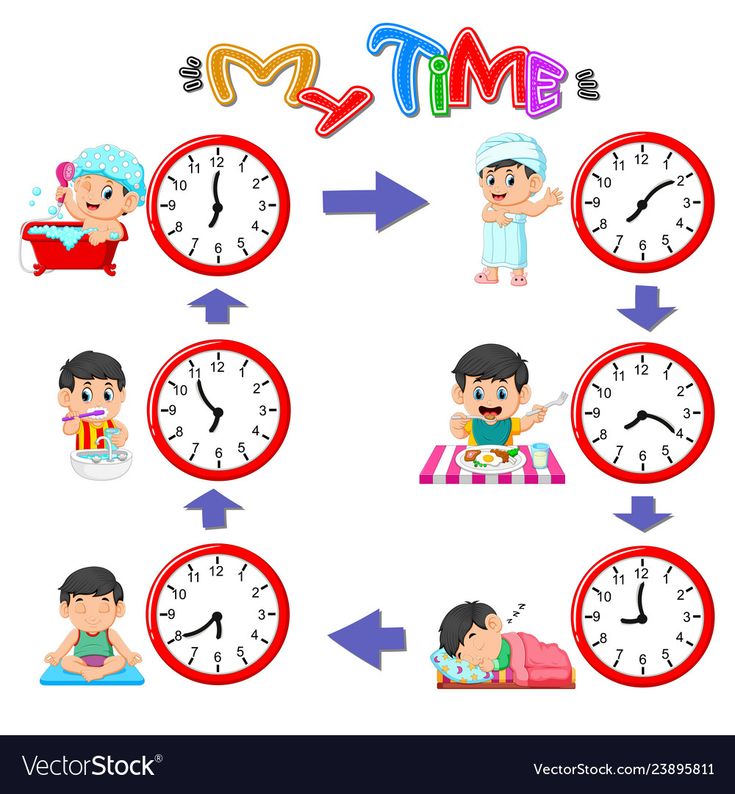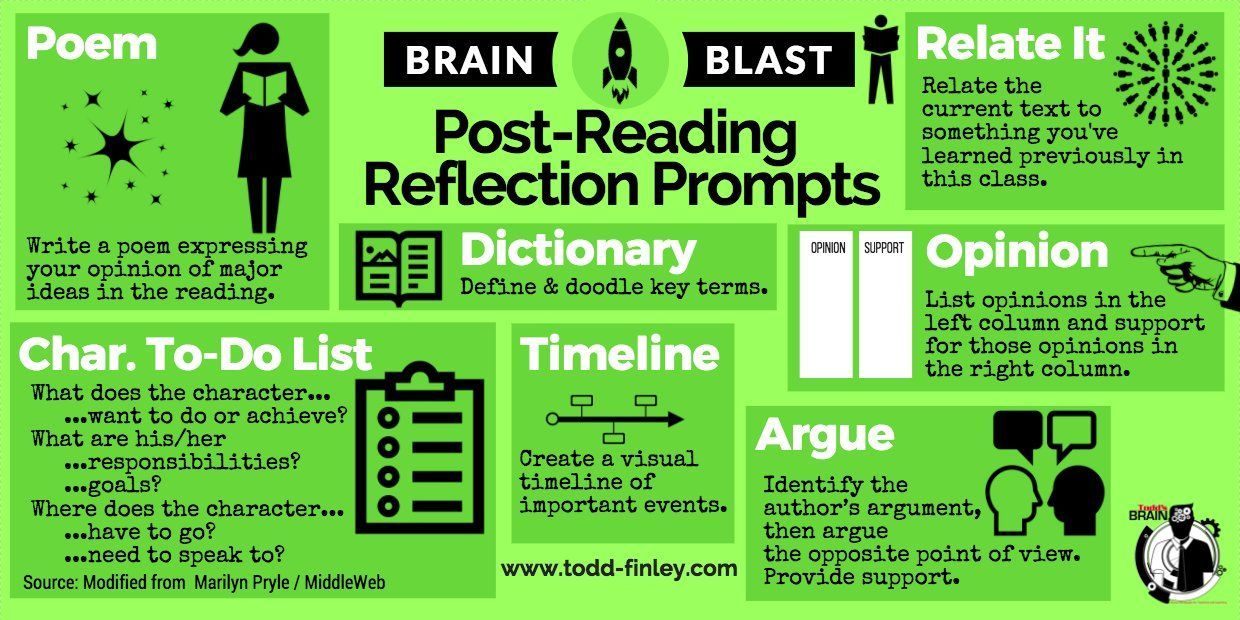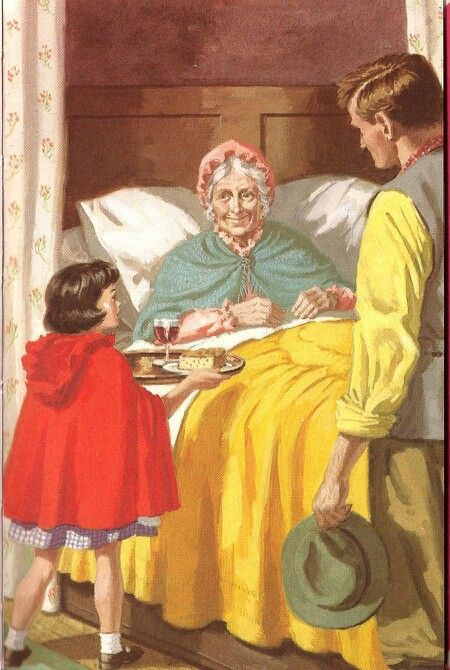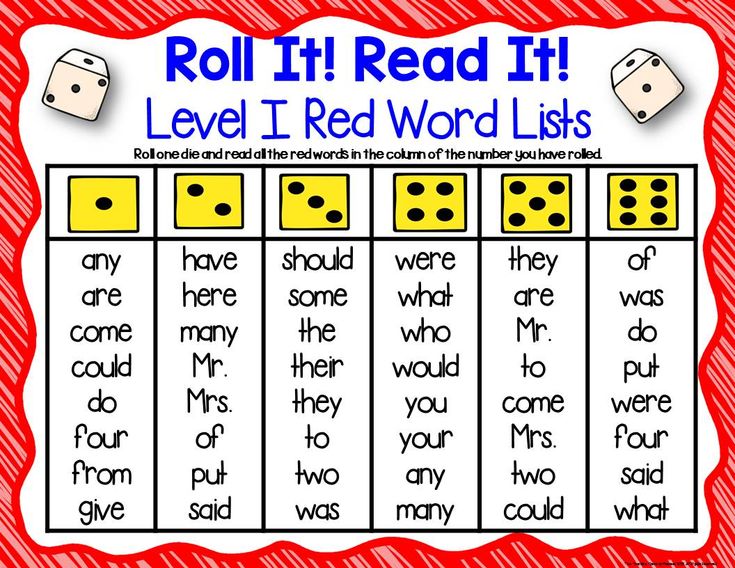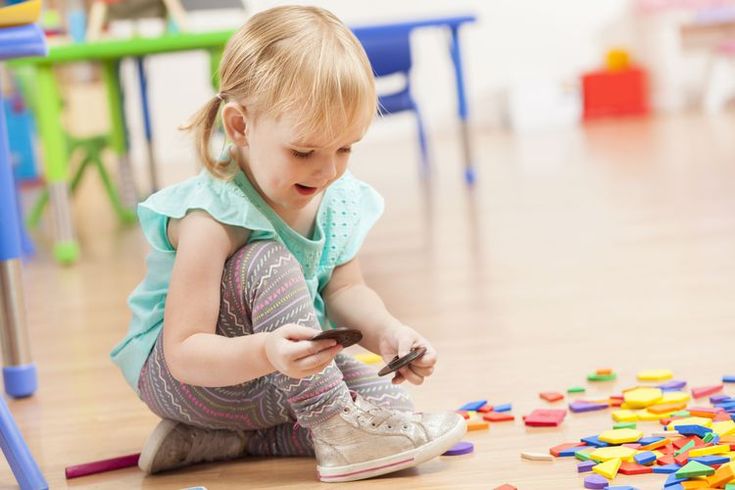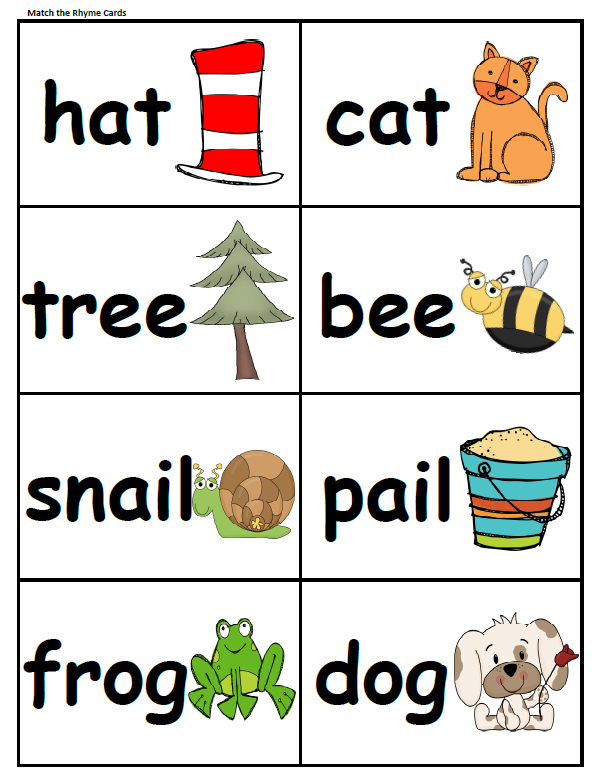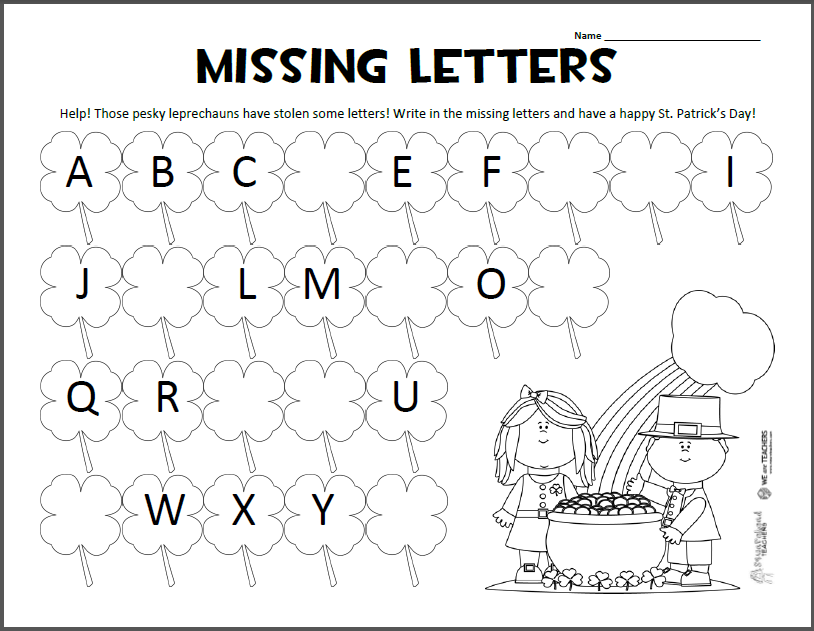Everyday math activities at home
Everyday Math Activities Kids Can Do at Home
Since many newer math programs, like JUMP math and Singapore math, work hard to help children recognize math in the real world, finding everyday math activities at home is a great way for parents to reinforce this philosophy.
Opportunities to explore math with your child pop up everywhere. Going to the grocery store, cooking dinner or even watching the news together are some of the ways these opportunities present themselves.
Math in the Kitchen
At the end of a long day, when you’re thinking about getting dinner ready and getting everybody off to various appointments and lessons, creating mathematical moments is probably the farthest thing from your mind.
However, having your child help you in the kitchen not only offers the benefit of an extra pair of hands but also involves math. From measuring and sequencing to estimation and multiplication, the kitchen is a real-life school for kids of all ages.
Math on the Road
While road trips and other types of travel are a wonderful way to get away from the pressures and responsibilities of real life, they also provide some really interesting opportunities to practice math.
A game called license plate math requires participants to pretend to be spies breaking codes to turn letters into numbers. That’s only one of many ways to drive home math while you’re driving away from home. There’s also budgeting meal money, calculating the cost of gas and figuring out distances on maps.
Math at the Grocery Store
Grocery shopping, or any other kind, can be a stressful chore when your kids are with you. In between the cries of “can we buy that?” and “Ick, asparagus!” you can make the trip more manageable by drawing on some math learning. The store provides wonderful opportunities to, among other things, practice estimating cost, creating and sticking to a budget and using the scale to weigh produce.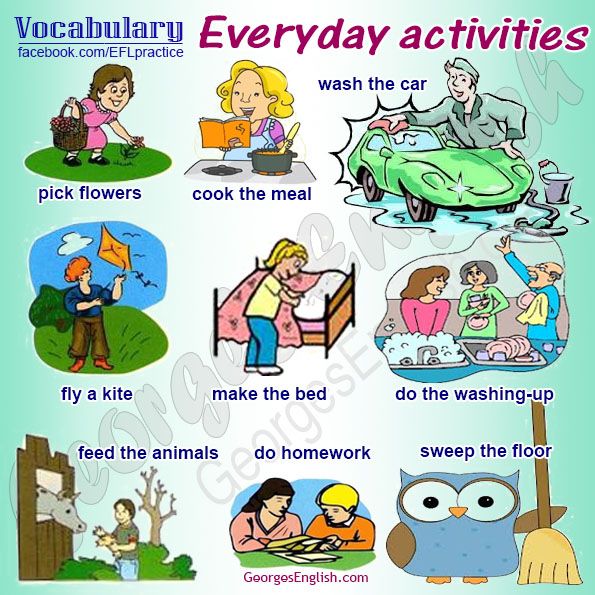
Some Lemonade With Your Math?
Not all teachable math moments accompany everyday chores. Math comes in all forms, including lemonade stands. In addition to congratulating your child on their entrepreneurial spirit, you can add a few extra ingredients to their lemonade.
As your child starts to put their business plan into action, they’ll need some help figuring out proportions, understanding capital investment and settling on a price that will bring in some profit.
Math Through the Whining
If you’re like many parents, hearing the phrases “I want one of those” and “I want the bigger half” set your teeth on edge. Some of it is the tone of voice and some of it is the lack of mathematical understanding that comes with the words. There’s no bigger half. Ever. And there’s rarely extra money for “one of those,” whatever it may be.
That whining brings forth opportunities to teach children about making a budget, rounding to the nearest price and learning about sales taxes.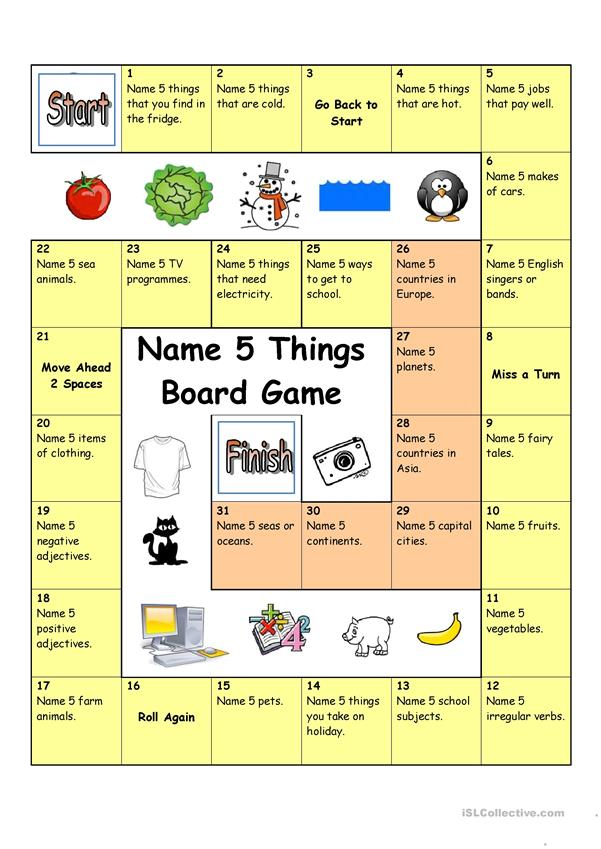 The begging for the bigger half offers the chance to teach your children about fractions, equal shares, and division with and without remainders.
The begging for the bigger half offers the chance to teach your children about fractions, equal shares, and division with and without remainders.
Cleaning Up Your (Math) Act
Cleaning and carpooling: two of a parent’s least favorite chores to complete. One involves a lot of time driving from house to house and the other involves a lot of time driving your kids back into their rooms. Using math can ease some of the frustration.
Carpooling provides a chance to have your children learn more about time—how much you need and how much you have. Cleaning up a room is a good time to introduce the concept of estimation (as in, how many toys are piled on the bed) and to have the real-life experience of time as you set a timer and ask them to beat the clock.
Indebted to Math (Learning About Debt)
Unfortunately for many people, debt is a part of their everyday life. Even if it isn’t, your child probably hears a lot about debt and budget deficits in the news.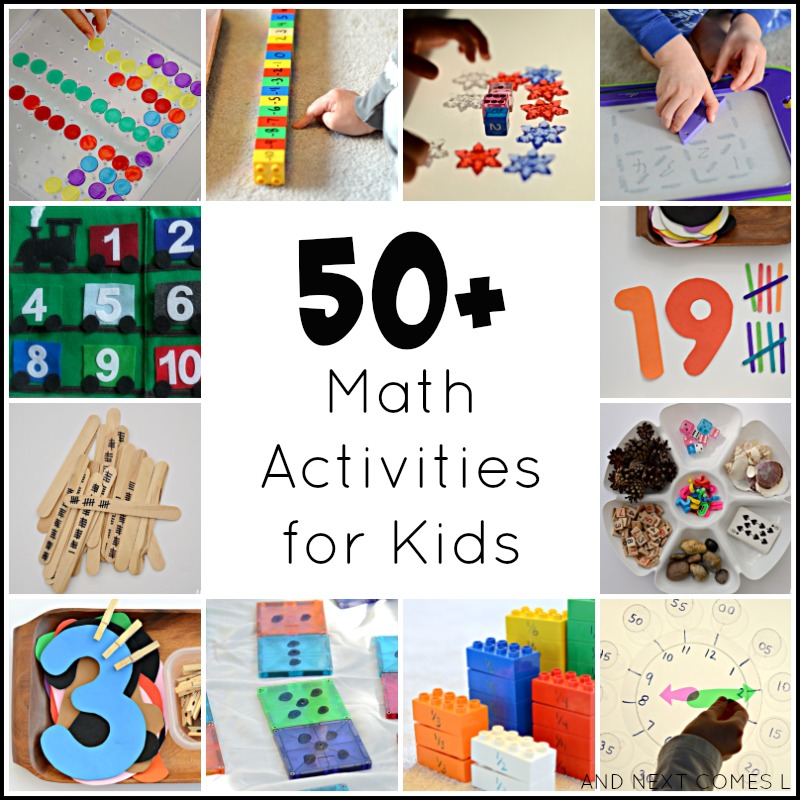
As depressing as it is, the subject contains many teachable moments. Explaining the concept of debt as it pertains to borrowing and sharing is one lesson you can share, as is helping your child understand what interest is and how it’s calculated.
Source: Very Well Family
Fun Hands-On At Home Math Activities and Games
Save this idea for later so you don't forget to use it!
23 shares
Math isn’t the most fun subject to do at home, but there are also a lot of fun ways to make math more interesting! Try these at home math activities and keep learning fun while you are stuck at home!
Some of you may not know, but I used to homeschool my oldest daughter. We taught her at home from preschool through fourth grade, and ultimately decided to enroll her in school for fifth grade and beyond.
Our original goals in homeschooling were to help her learn through interest-based learning, so we could do things that she wouldn’t be able to do in school (like coding for kids and a lot more hands-on science at home).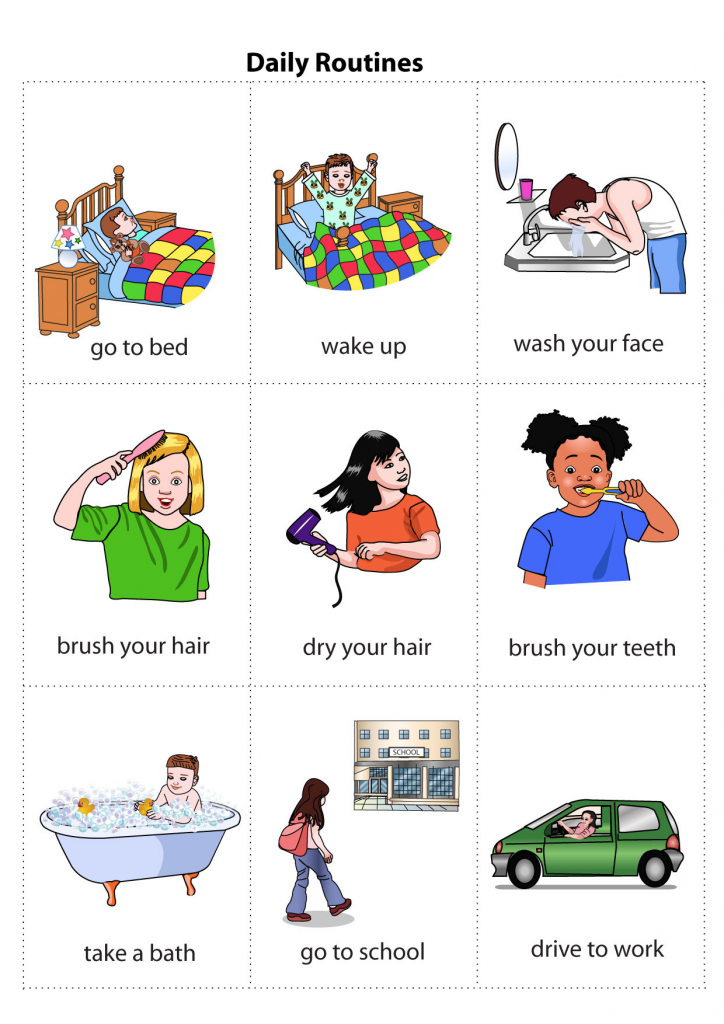
She also has ADHD, and we felt that she would learn best if she was in a less distracting environment.
During our time homeschooling, we found that hands-on math activities for kids is almost as much fun as hands-on science if it’s done right!
So today, I thought I would share with you some fun at home math activities that you can use at home when the kiddos are cooped up inside.
What is Hands-On Math?
Hands-on math is simply math activities that kids can do at home that use real-world materials.
So, instead of paper and pencil, kids are working with 3D shapes, physical objects, or other hands-on math tools to learn.
These math activities are meant to be fun, so if you find that you’re having to force your kids to do these activities, it may be best to stop the math activity for a while and try again in a day or two, or try a different math activity!
These math activities at home are meant to support whatever your kids are learning in school, so use the resources sent home from your child’s teacher as a guide for what topics to choose.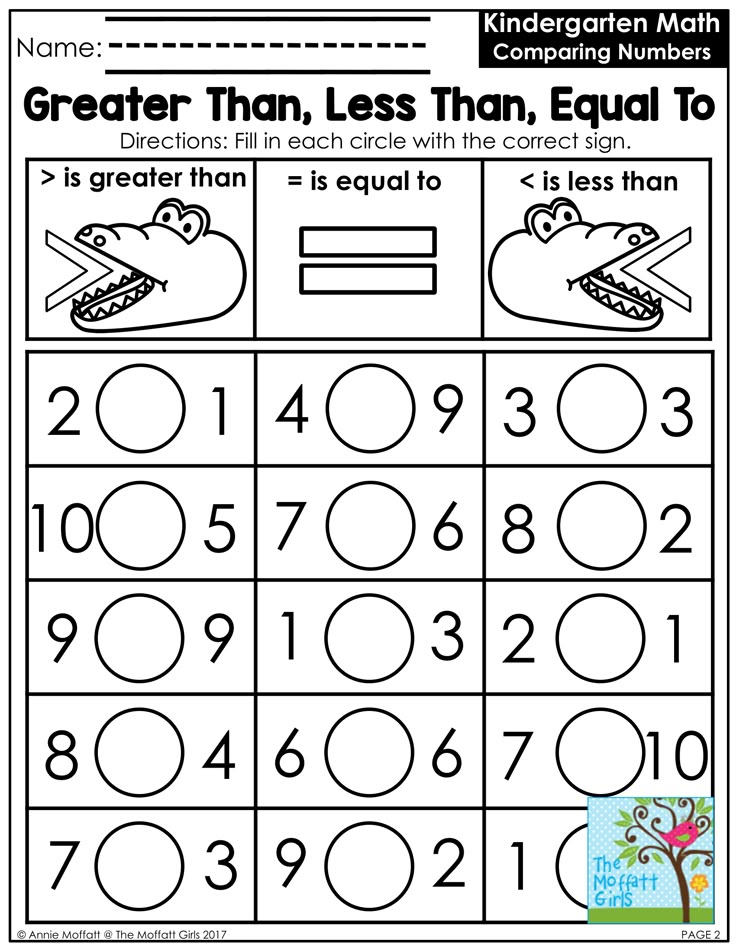
I’ve separated the activities by grade level below, but your child’s teacher may have different learning targets that you’ll find in another grade section.
Supplies for Math at Home
If you’re stuck doing math at home, try these fun math activities to make things a little more fun!
Shifu Plugo Count – Math Game with Stories & Puzzles – Ages 5-10 – STEM Toy | Augmented Reality Based Cool Math Games for Boys & Girls (App Based)STEM Starters for Kids Math Activity Book: Packed with Activities and Math FactsAmazing Visual MathIntooba Math/STEM Construction KitMonkey Balance Cool Math Game STEM Montessori Preschool Learning Counting Toys for 3 4 5 Year olds First Grade Children Kids Kindergarten Board Game (Upgraded,Common Package Box )CLOUD HOPPER Addition Subtraction STEM game – Alien chase adventure – Fun learning toy for ages 6 and up – Aligned to Singapore math – With 10 faced math dicemiYou STEM Math Toy Educational Balance Game and Counting Frog Set for School Kids Years 3 4 5 6 7ThinkFun Math Dice Junior Game for Boys and Girls Age 6 and Up – Teachers Favorite and Toy of the Year NomineePlay Brainy Fun, Kid-Friendly and Math Educational- Easy Number Game-Toddler Puzzle- 3D Baby Animal Hedgehog Puzzle- STEM Learning Toy- Ideal for Baby, Toddler, and Kids.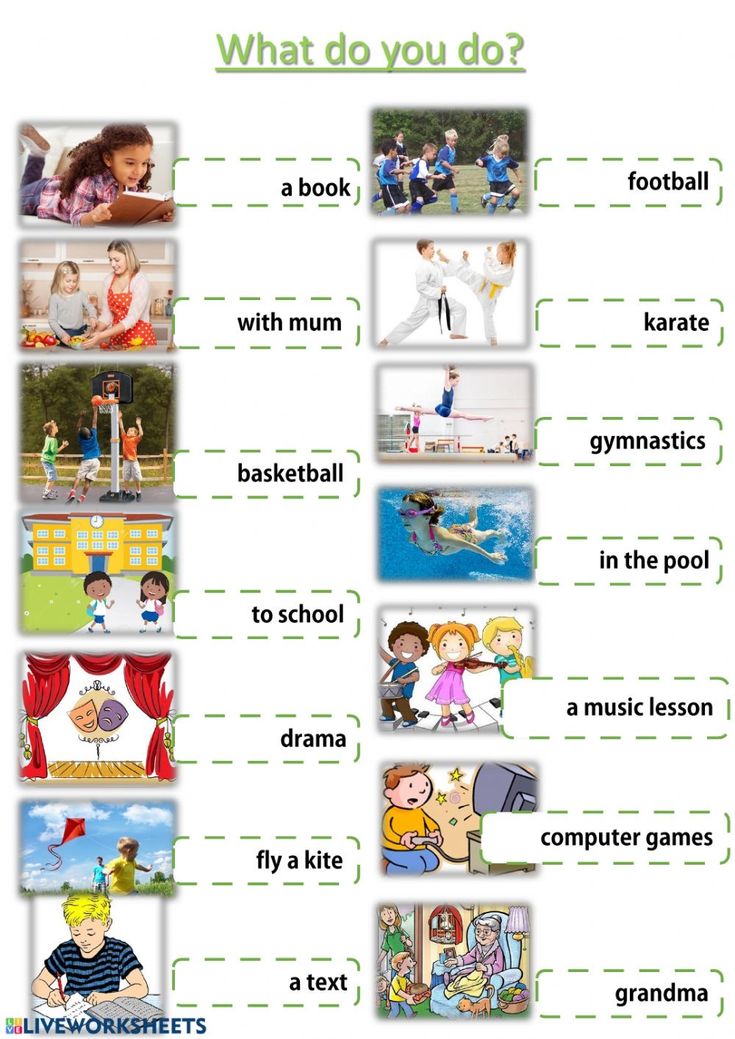 , Multicolored
, Multicolored
The Ultimate List of At Home Math Activities for Kids
If your kids are learning math at home, try these fun hands-on math activities! I’ve divided the activities by grade level so that your kids can have a blast with hands-on math for their age-appropriate group.
I’ve tried to avoid worksheets as much as possible because there are tons of other math worksheet collections out there. I find that my kids really like true hands-on math, which doesn’t involve worksheets at all.
And if you want something screen-based, check out these math apps for kids.
If you want a fun DIY math summer camp, we’ve got that too!
Math Activities for Preschoolers
Preschoolers will have a blast with these math activities at home.
Make your own clay number manupulatives.
Make a pattern block heart challenge.
Number hunt sensory bin
Duplo number matching
Fine motor number tray
Kindergarten Math Activities
Kindergarten kids will have a blast with these math projects at home.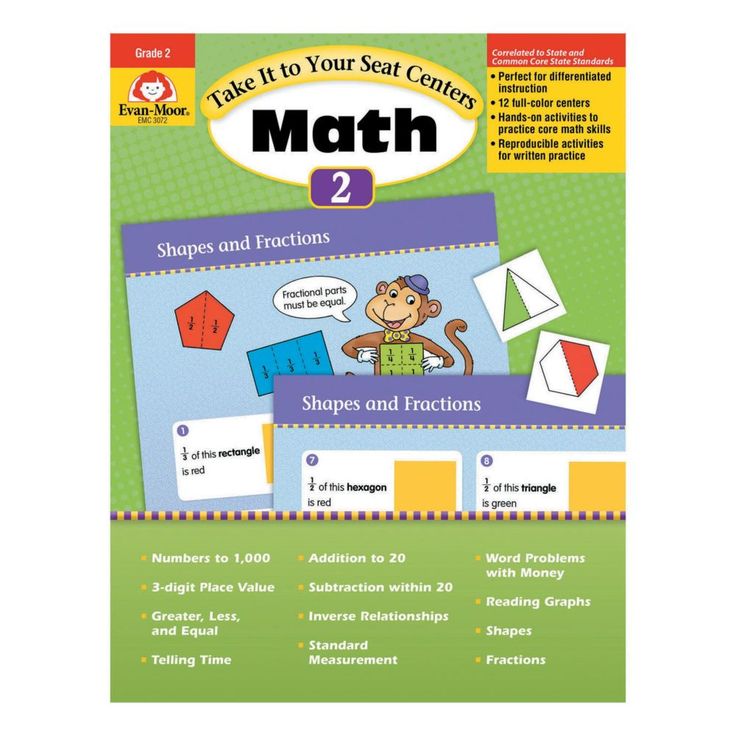
Apple Number Match Clip Cards
Bug bingo cards
Domino number matching
Play dough math smash
Craft stick geometric shapes
1st Grade Math Activities
Try these first grade math activities at home!
Strawberry addition and subtraction clip cards
Counting bear word problems
3D geometric shapes
Addition clouds
Skip counting with socks
2nd Grade Math Activities
Second graders will love these math activities at home.
Make your own play store
Uno math game
Make 10 card game
Place value beanbag toss
Skip counting hopscotch
3rd Grade Math Projects at Home
Third grade is a fun time for math. Try these fun math activities for third grade!
Lemonade fraction clip cards
Fraction art project
Dice multiplication game
Jenga division
Lego fraction game
4th Grade Math Activities
4th graders will love doing these hands-on math activities.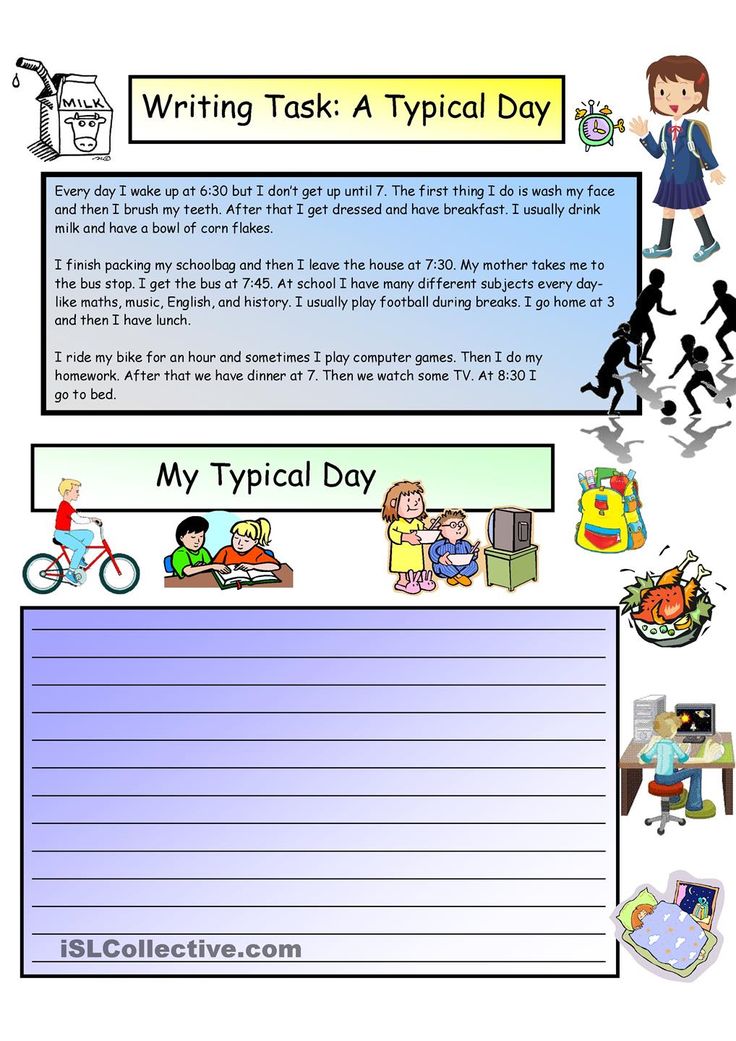 4th Grade Math Activities are more fun than you might think!
4th Grade Math Activities are more fun than you might think!
Peeps multiplication and division (you can use any candy)
Make a mobius strip
Cute math games for 4th grade
LEGO area and perimeter
STEM Math Activities for 5th Grade
5th graders will have a fun time doing these hands-on math activities.
Area and perimeter house building challenge
Oreo fractions
Multiple digit multiplication game
Equivalent fraction game
Decimal place value card game
Fun Math Activities for Middle School
Middle schoolers love math games, too! Try these fun math activities for middle school at home.
Dice probability challenge
Probability knock out game
Distributive property game
Equivalent ratios matching game
More middle school math games
Save this idea for later so you don't forget to use it!
23 shares
Assignments for children aged 9-10
This section of the Razumeikin website contains exercises for children aged 9-10, which will help the child broaden his horizons and serve as an addition to school subjects.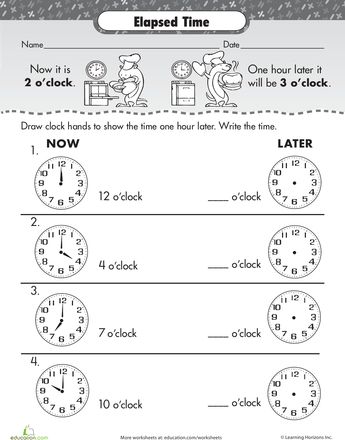 When developing a set of tasks for schoolchildren, our specialists tried to make them not only as understandable and exciting as possible, but also really useful in practical terms.
When developing a set of tasks for schoolchildren, our specialists tried to make them not only as understandable and exciting as possible, but also really useful in practical terms.
The "Development" block presents interesting tasks for children aged 9-10, which help improve logical and spatial thinking, memory, and attention. All these skills help to simplify the process of assimilation of the school curriculum. Tasks-tests in the "Development" block are built in the form of an interesting online computer game for children 9-10 years. By doing them, young students develop counting and reading skills and strive to learn something new.
Interesting entertaining tasks for children of 9 years old in the "Education" block will help schoolchildren to consolidate the knowledge they received in primary school. The exercises presented here correspond to the tasks that are encountered in the certification tests. Consistently completing tasks-tests for children aged 9-10, prepared by our specialists, the guys will be able to:
- Prepare for exams in mathematics, Russian language, reading, the world around.
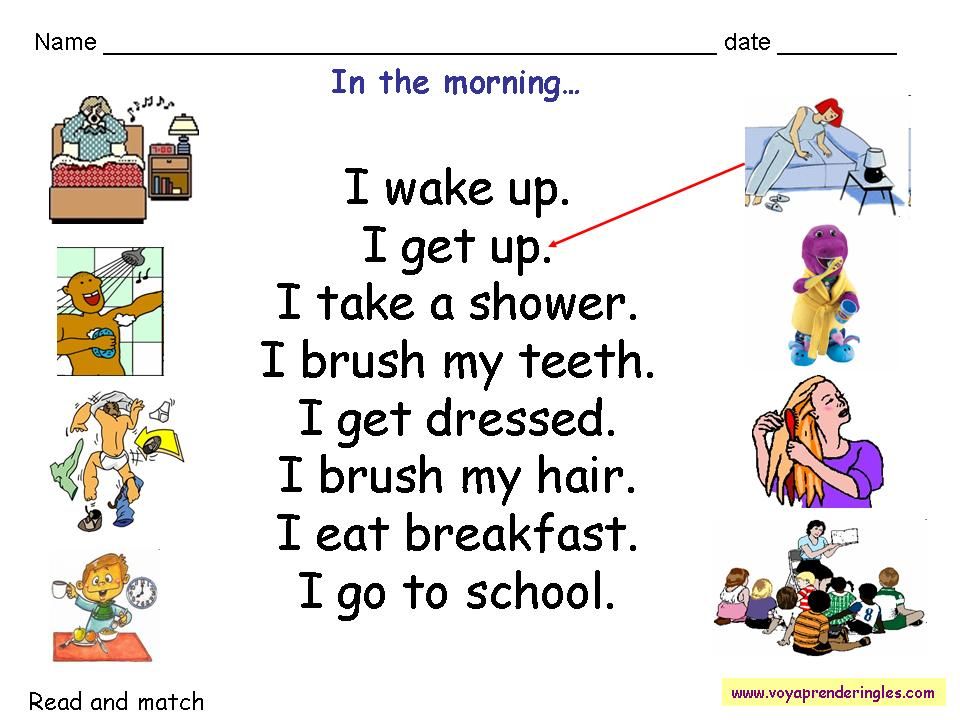
- Recall the literary works covered in elementary school.
- Practice solving advanced problems in mathematics and Russian.
- Refresh the topics that have been studied within the framework of the subject "The World around".
For most of the tasks-questions for children 9 years old, we have provided a detailed explanation of the solution. It is given to the child if the answer he gave was incorrect or incomplete. The "Science" block includes entertaining children's games and tasks for 10 years old, coping with which the child learns about chemical elements, structural features of substances, air pressure, refraction of sunlight, learns fascinating facts about our planet, etc. In most exercises provided introductory information, which we have presented in an accessible form. After a preliminary explanation of the task-game to children 9-10 years is proposed to start its implementation.
A few words about the submission of material
In order for little students to learn information during the lessons, for each exercise for children 10 years old, the specialists of the Razumeikin website prepared thematic pictures and voiced text.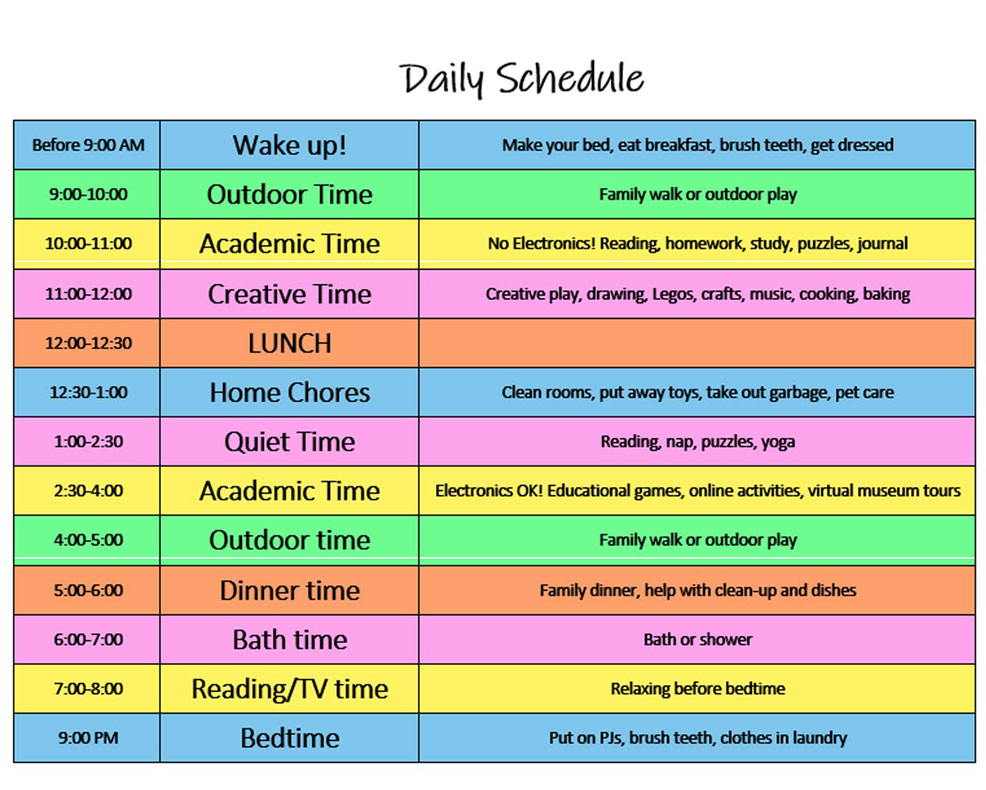 We are convinced that this approach will allow you to learn the material better. For many interesting test games for children 10 years old, we have prepared educational videos that will help you cope with online tasks.
We are convinced that this approach will allow you to learn the material better. For many interesting test games for children 10 years old, we have prepared educational videos that will help you cope with online tasks.
Coping with test tasks, children of 10 years old receive online awards: cups, medals, etc. They help to increase the student's interest in independent studies. Most of the exercises are graded based on the attempt the student made to give the correct answer.
At the same time, the child has the opportunity to return to completed tasks in order, for example, to improve their own result.
To identify strengths and weaknesses in child development 9years, we advise you to take online tests for free before performing cognitive tasks-games. The results obtained will help to understand which topics you need to dwell on in more detail.
exercises, games and tasks for the summer for the future first grader
Preparing for school / Assignments
Parents no longer need to review dozens of manuals and children's websites.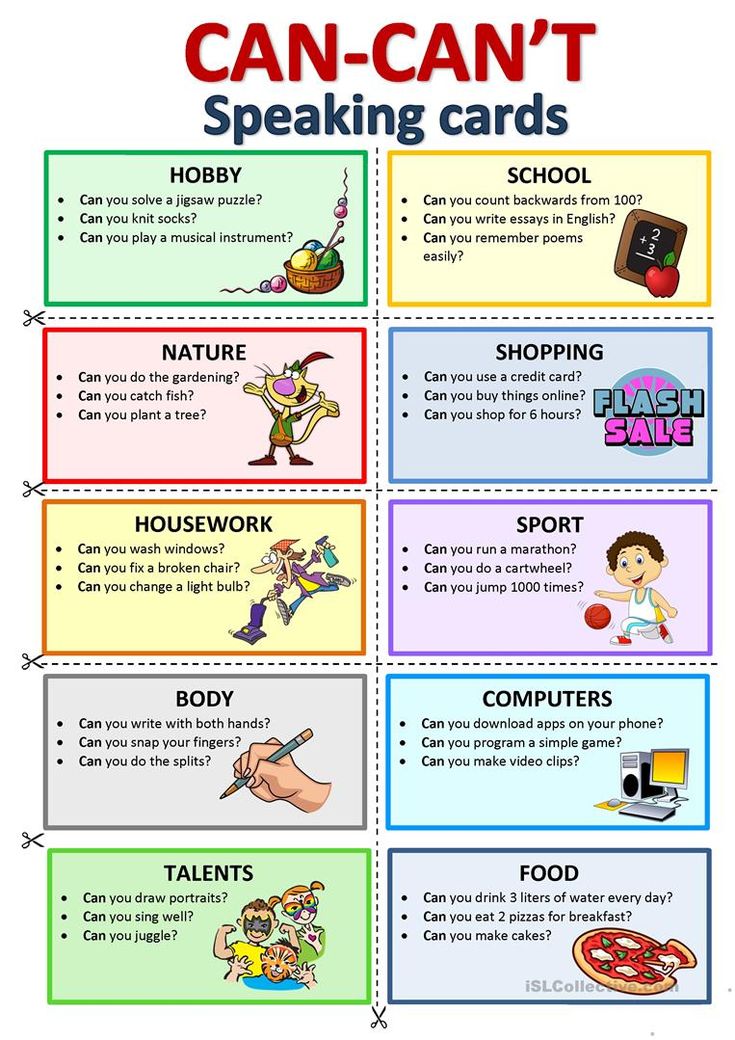 After all, the team LogicLike has prepared everything you need for an easy start and exciting learning. nine0003
After all, the team LogicLike has prepared everything you need for an easy start and exciting learning. nine0003
Assignments for classes online
Find the extra
Count the cubes
nine0002 Logic tasksLogic questions
Say a word
Guess by description nine0003
Entertaining account
patterns in pictures
How much should a future first grader study? nine0059
Start with 5-7 tasks a day and gradually build up.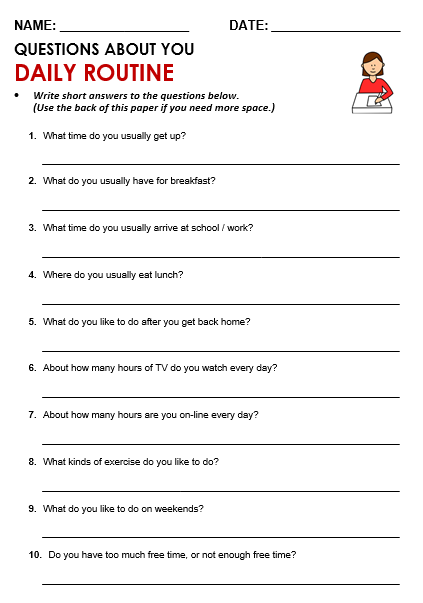
Looking for ideas for offline classes?
Here is a selection of popular developmental tasks and other activities, examples of entertaining assignments from LogicLike.
- We develop voluntary attention. nine0010
- We train short-term and long-term memory.
- We develop logical thinking.
- Performing speech therapy exercises.
- Preparing a hand for writing.
We develop attention
Initially, children do not know how to control their attention. They actively respond to everything new and interesting, but can't focus for long on something that doesn't appeal to them.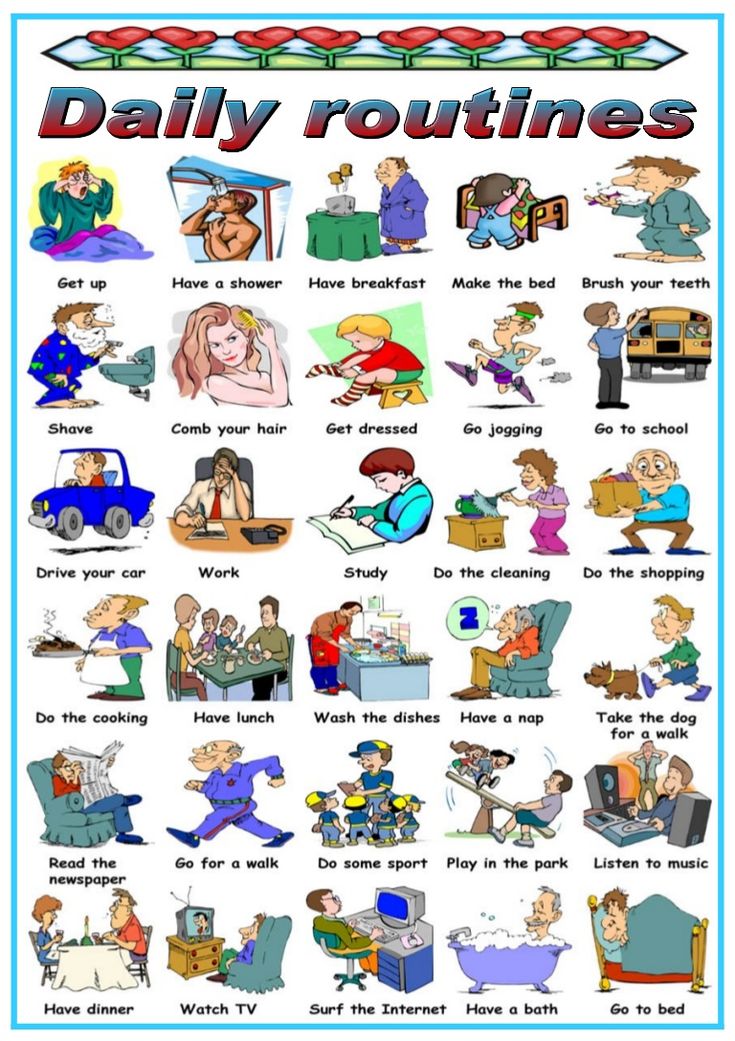 therefore it can be difficult for a first grader to sit through 45 minutes of a lesson without switching to extraneous matters. Games, tasks and exercises to develop attention from LogicLike. nine0003
therefore it can be difficult for a first grader to sit through 45 minutes of a lesson without switching to extraneous matters. Games, tasks and exercises to develop attention from LogicLike. nine0003
Task "Find and circle"
Give the child a short text (this could be an article from a children's magazine or a printed fairy tale) and invite him to cross out a certain letter in each line, for example, “A”. How can complicate the task? Ask the preschooler to cross out "A" and circle "B", or mark "A" only when it is preceded by a consonant. nine0003
Mission "Abracadabra"
On a piece of paper, write down a number of complex non-existent words and offer the child without errors copy them in a notebook:
MAPETLOOJERRAOTINDEBOJA
ZELLOTYMNOSTALLOTHOUSE LAW
ZHAMOTSVANERTALOFOGRODY.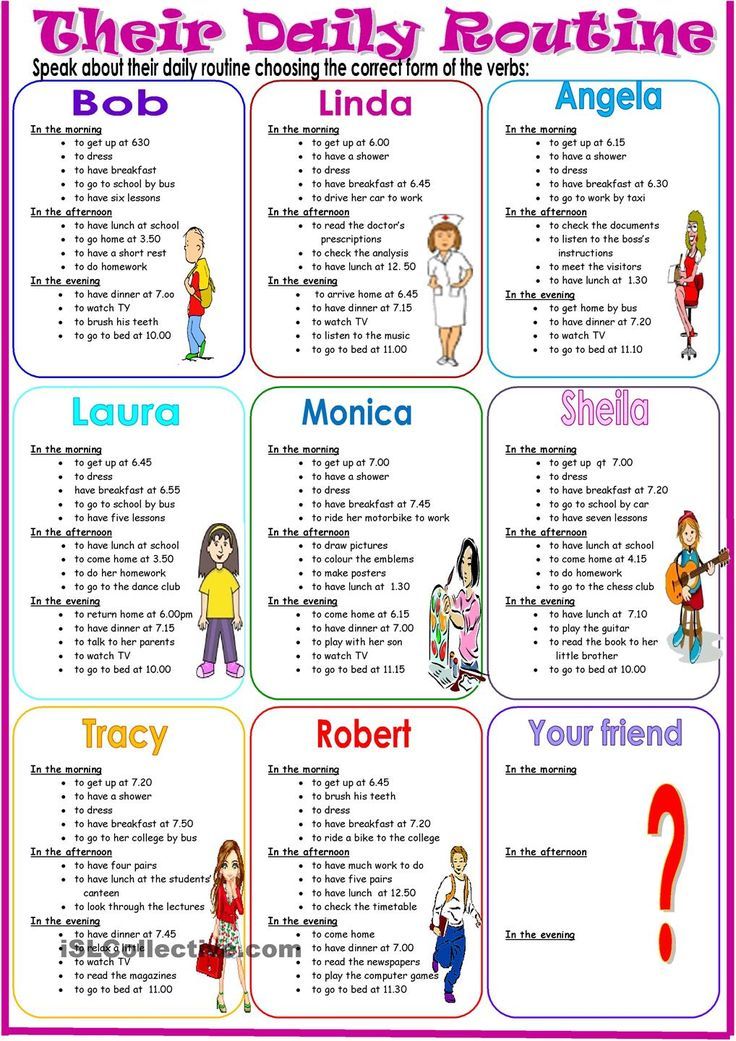 nine0003
nine0003
Attention task and spatial thinking
To decide tasks, press Start classes!
Yura made a building out of cubes (fig. on the right). Irishka hid a few cubes. nine0003
How many cubes does Yura need to restore the building?
Show answer
Answer:
5.
Exercise "Listen and act" nine0059
Name different words (table, bed, cup, pencil, bear, fork, etc.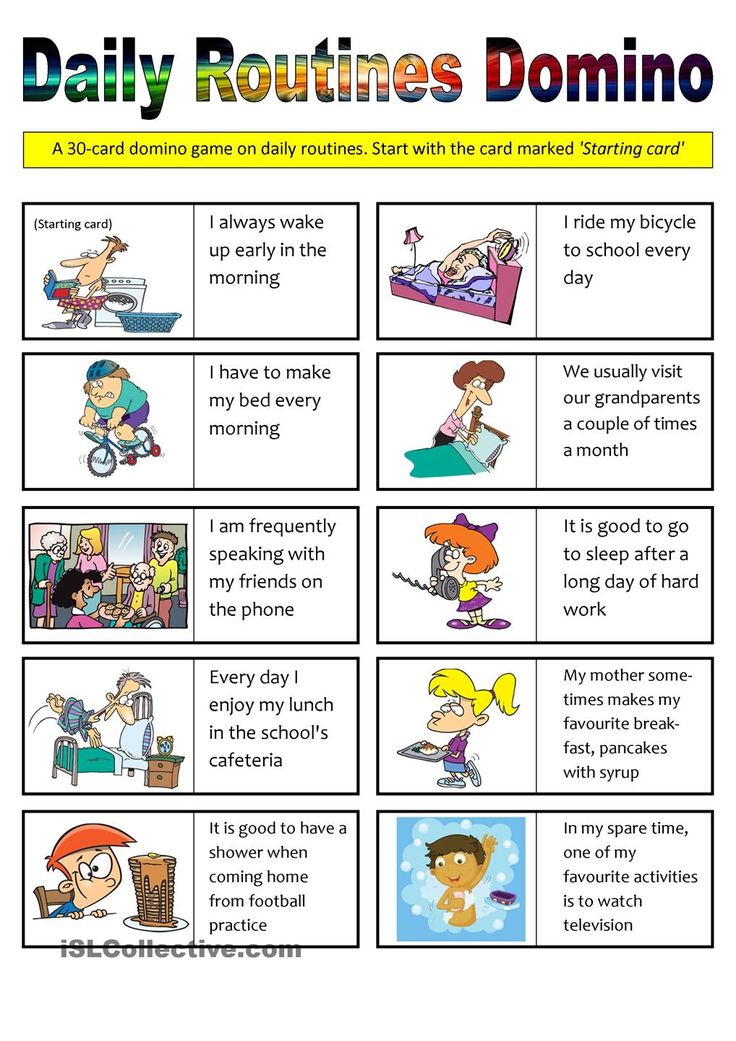 ) and ask clap your hands when the word for an animal comes up. Increasing the difficulty: now it will be necessary to get up every time you hear the name of the plant. Connect two parts of the exercise. If it's easy, add another action.
) and ask clap your hands when the word for an animal comes up. Increasing the difficulty: now it will be necessary to get up every time you hear the name of the plant. Connect two parts of the exercise. If it's easy, add another action.
Exercise "Show me" nine0059
Name the parts of the body and point to them. And the child must repeat the words and show on himself. Then start to confuse him: say "hand" and point to the leg, etc.
We develop memory
Like attention, the memory of a preschooler only passes from involuntary to controlled: he quickly memorizes verses with bright and interesting images, but learns boring texts with difficulty. nine0003
Tasks and exercises for the development of memory will help the future first grader to better absorb any useful new information.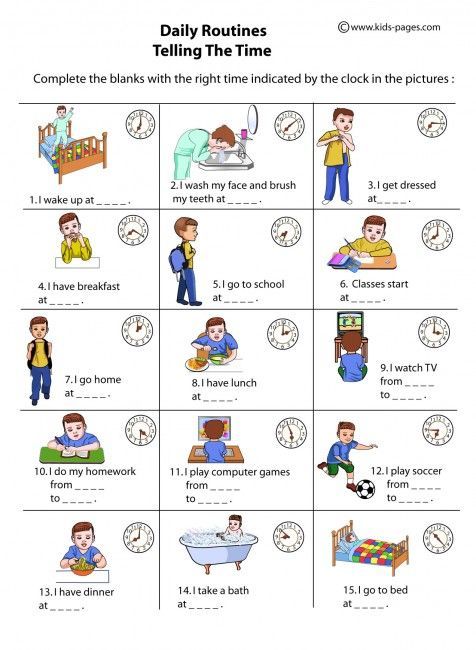
The task "Chain of words: listen and remember"
Out of ten spoken words, an older preschooler (6-7 years old) is able to remember about seven. Let's check how well your child's memory is developed? nine0003
Chain of words to check: bedroom, vase, tiger, oval, square, rhombus, wolf, fish, winter, hare, house, sun, hedgehog, cloud.
Task "Pairs of words"
Read all pairs of words. Then call only the first and wait for the second in response:
autumn - rain; vase - flowers; doll - dress; nine0091 cup - saucer; book - page; water - fish;
machine - wheel; house - window; hours are arrows.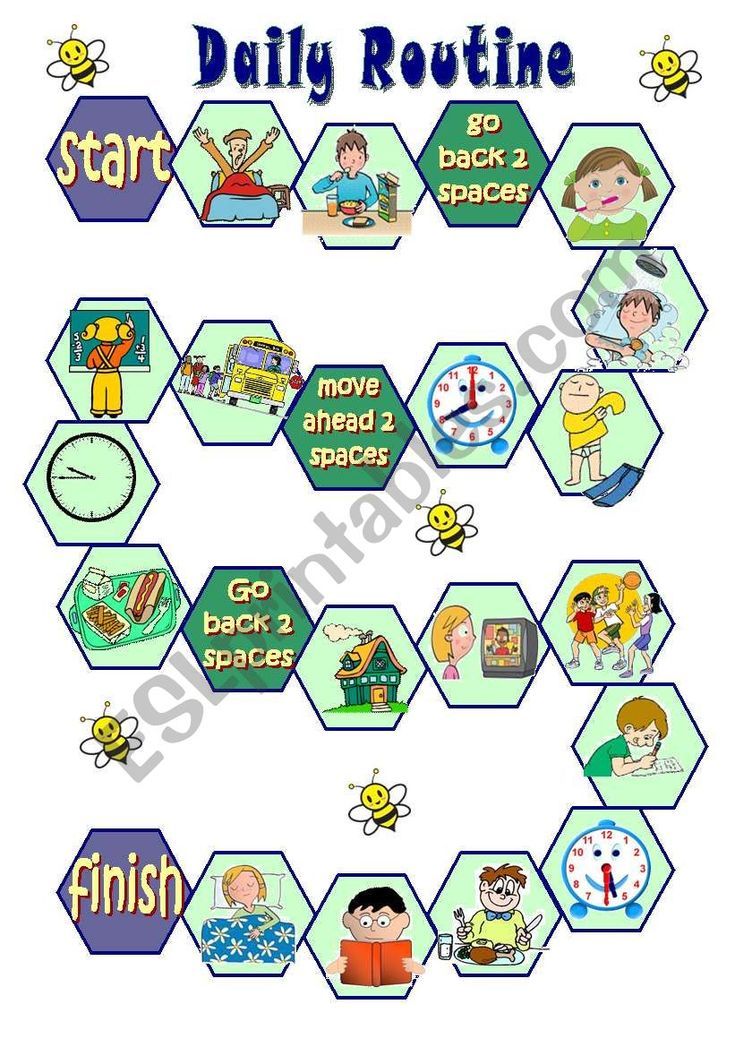
Good to know. Russian psychologist Lev Vygotsky advised teaching a child several techniques that will help him memorize information easier:
- repeat aloud and to himself;
- mentally fix some objects through others, creating associations; nine0091 - to combine objects into groups, highlighting their similarities or differences.
Exercise "Remember and describe"
After a joint walk, remember what interesting things you saw on the street. Perhaps it was a bright sign or a passer-by with a funny dog. Ask the child to describe the object in detail. nine0003
Exercise "Repeat the figure"
Take counting sticks, lay out an intricate figure from them and give the preschooler time to for him to remember.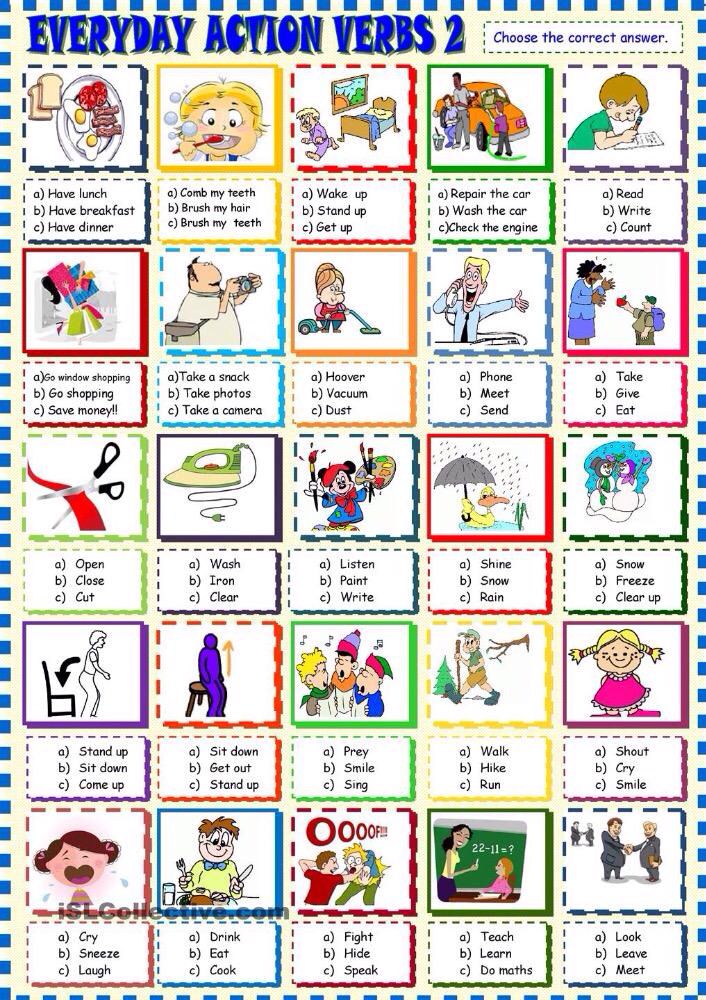 Suggest from memory to depict the same composition of counting sticks.
Suggest from memory to depict the same composition of counting sticks.
More ideas - in the material "Games, developing thinking, memory, attention. nine0003
Online games for training memory and attention
You can develop the speed of perception, reaction and visual memory with ease. Suggest to the child try our game "Master Schulte".
We develop thinking
Children with developed thinking more easily absorb new knowledge and come up with how to apply. nine0003
When children complete LogicLike's pre-school assignments, they learn to analyze information, establish relationships between objects, divide them into groups, compare and generalize.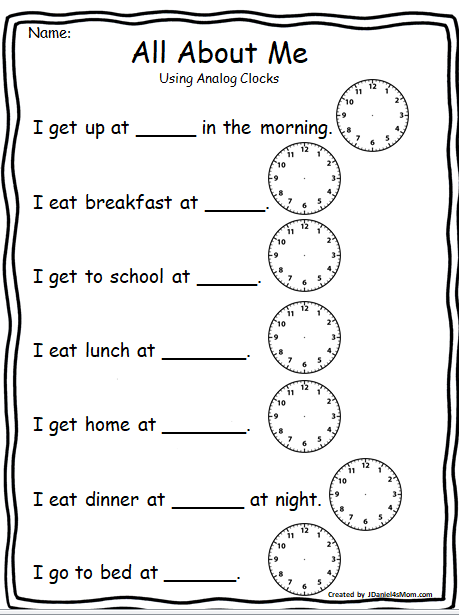
Learn more about the development of logic and thinking in children.
Start with age-appropriate tasks nine0003
- 5-6 years
- 6-7 years
- 1 class
It can be difficult for a preschooler to understand all the variety of tasks and exercises. on one's own. To facilitate the first steps, we recommend completing 5-7 tasks from each category together with child. nine0003
"What, why and why?"
Reflect together on the following questions:
In the morning we have breakfast, and at noon - .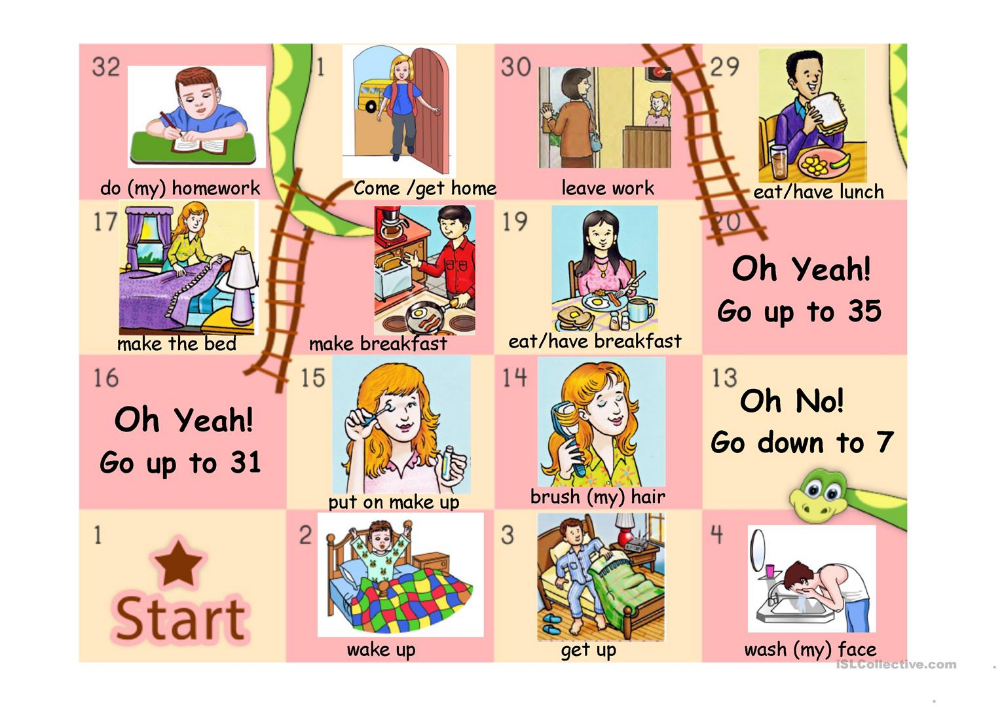 ..?
..?
Why, before the train passes, barriers are lowered along the track?
A small cow is a calf, a baby lamb is...?
Is the dog more like a cat or a chicken? What, what do they have in common? nine0091 Why do all cars have brakes?
Why do you need to put a stamp on a letter?
"Which word is missing?"
In each row you need to find an extra word:
old, decrepit, small, dilapidated;
Brave, evil, courageous, bold; nine0091 Apple, plum, cucumber, pear;
Milk, cottage cheese, sour cream, bread;
Hour, minute, summer, second;
Spoon, plate, bag, pan;
Dress, hat, shirt, sweater;
Soap, toothpaste, broom, shampoo;
Birch, oak, pine, strawberry;
Book, TV, tape recorder, radio.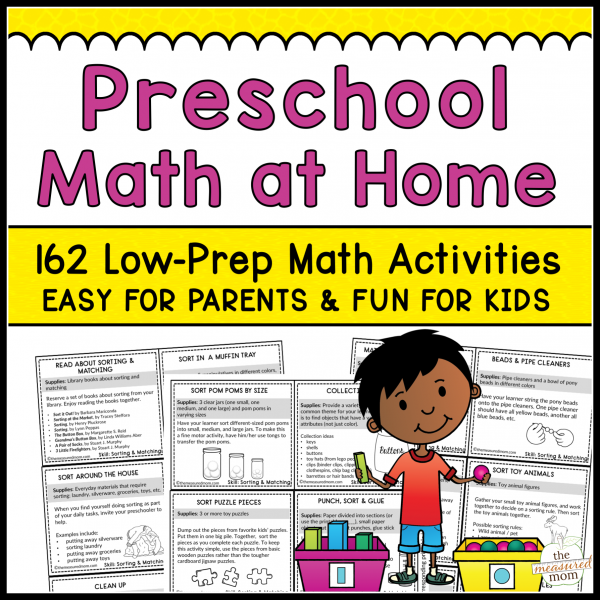 nine0003
nine0003
The fourth extra task
On the LogicLike platform, you can perform similar and other tasks for the development of thinking in interactive format. Example from our database:
To decide tasks, press Start classes!
See more tasks like "Find an extra word or item". nine0003
Exercise "Who is more?"
Invite the child to name as many words as possible that stand for specific concepts: trees, flowers, modes of transport, sports, etc.
Exercise "Important words"
Name one concept (garden) and add accompanying words to it (plants, gardener, fence, Earth).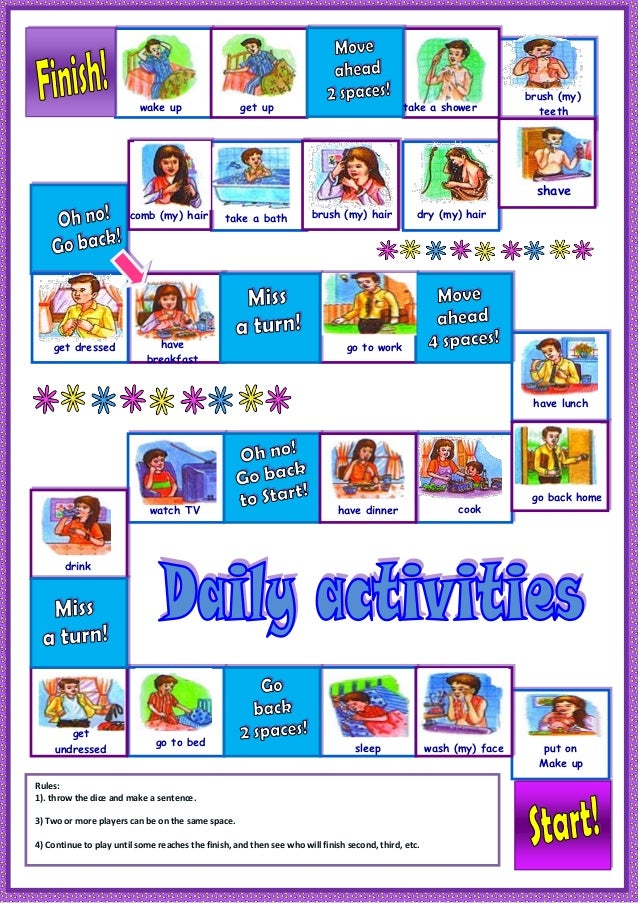 Ask the child to choose the two most important of them, without which the main subject cannot get by. Ask questions to understand why he chose certain words. Examples of other pairs: shop - seller, milk, counter, money; water park - inflatable circle, slides, water, bathing suit. nine0003
Ask the child to choose the two most important of them, without which the main subject cannot get by. Ask questions to understand why he chose certain words. Examples of other pairs: shop - seller, milk, counter, money; water park - inflatable circle, slides, water, bathing suit. nine0003
Logic task
Logic problem solving is one of the most effective ways to develop thinking. We create a variety of entertaining tasks that are interesting to solve for children and adults.
To decide tasks, press Start classes!
We develop speech
An older preschooler can easily pronounce sounds, knows how to build complex, but coherent sentences.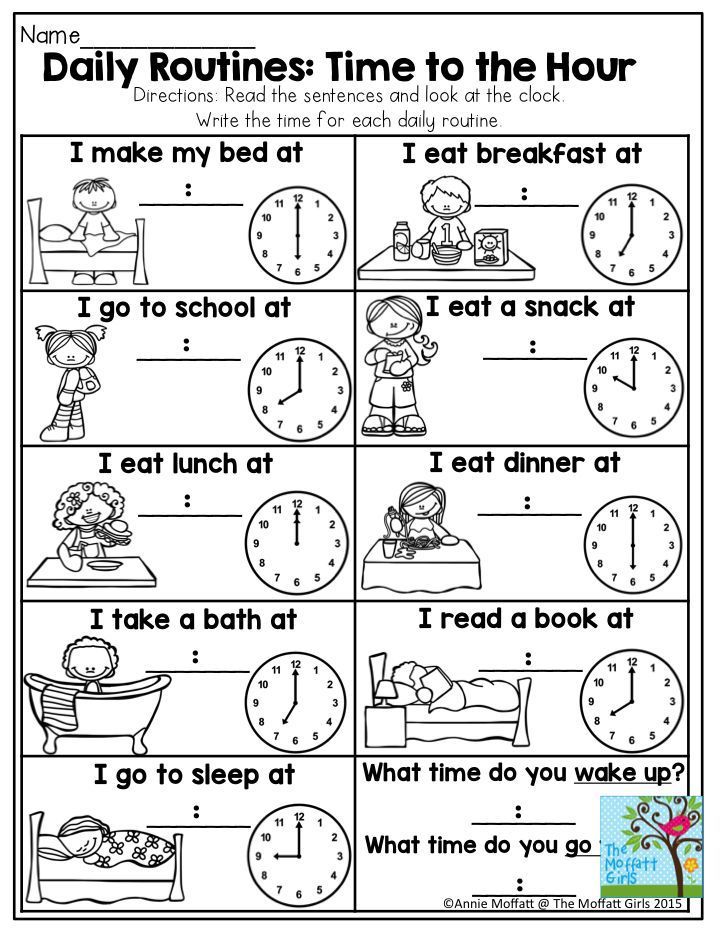 His vocabulary has increased: if at 3 years old the child knew about 1200 words, then at 6 years old - at three times more. Active communication and solving tasks and exercises for the development of speech will help a preschooler to speak beautifully and fluently. nine0003
His vocabulary has increased: if at 3 years old the child knew about 1200 words, then at 6 years old - at three times more. Active communication and solving tasks and exercises for the development of speech will help a preschooler to speak beautifully and fluently. nine0003
"Warm-up for the tongue"
Learn a few tongue twisters together and practice pronouncing them without hesitation:
Marina pickled mushrooms, Marina sorted raspberries;
The hedgehog chewed blackberry jelly in his dwelling;
The cat lapped up the milk, and Vitya dipped the roll into the milk;
Senya carries hay in the canopy, Senya will sleep in the hay; nine0091 Dima gives melons to Dina, Dima gives melons to Dina;
Mom, you don’t look for us, we pinch sorrel on cabbage soup.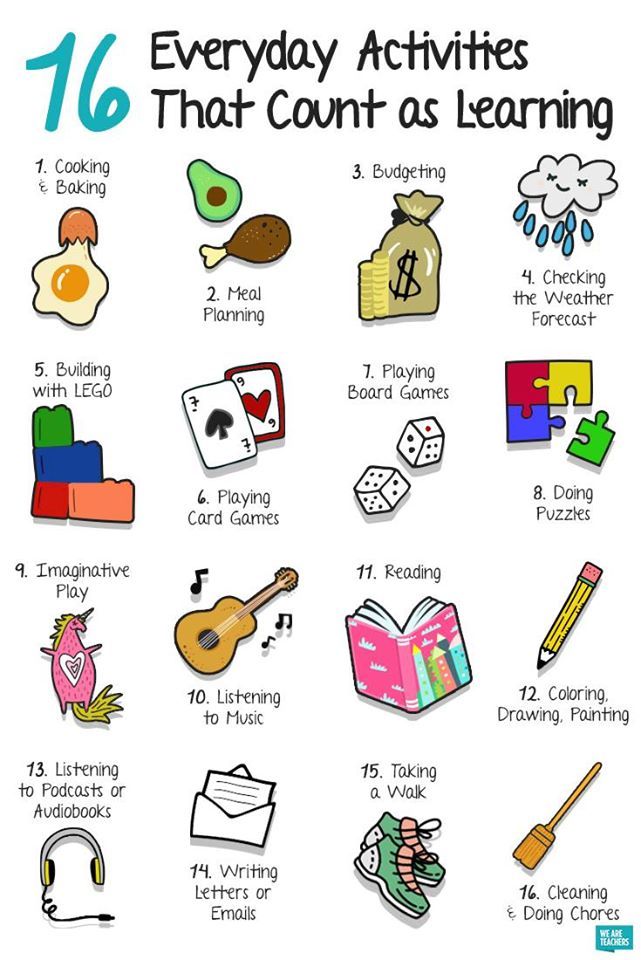
Quest "I know everything"
Read the word and ask them to explain its meaning. Example: the word "chair". To which group objects it belongs to (furniture), what it is made of (wood), why it is needed (to sit on German)? nine0131 Words for completing the task: notebook, plane, pencil, table.
Exercise "Tell me what you see"
Take a book with bright plot illustrations, choose an entertaining picture and ask questions about her: who? what is he doing? when? why? why? Suggestive phrases will help to talk: “What do you think?”, “Have you ever met such a thing?” etc. nine0003
Exercise "Journalist"
Offer to play journalist and interview you.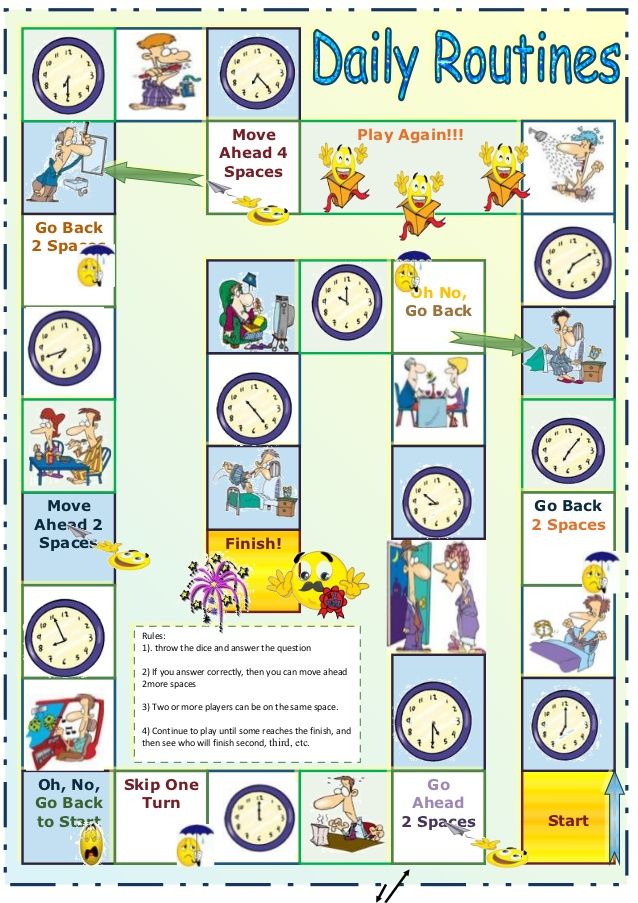 Can you imagine being a singer actor, athlete Existing or fictional - it doesn’t matter, the main thing is to ignite interest in child. During this exercise, you will have a good time and learn how to correctly build dialogues.
Can you imagine being a singer actor, athlete Existing or fictional - it doesn’t matter, the main thing is to ignite interest in child. During this exercise, you will have a good time and learn how to correctly build dialogues.
We develop fine motor skills nine0021
“A child’s mind is at his fingertips,” the Soviet teacher rightly stated. Vasily Sukhomlinsky. Do exercises that simultaneously prepare your hand for writing and stimulate the development of speech and thinking.
Exercise "Our hobbies"
Origami, paper applications, modeling from plasticine, dough or "space" sand, assembly building blocks or puzzles are all great ways to develop fine motor skills.